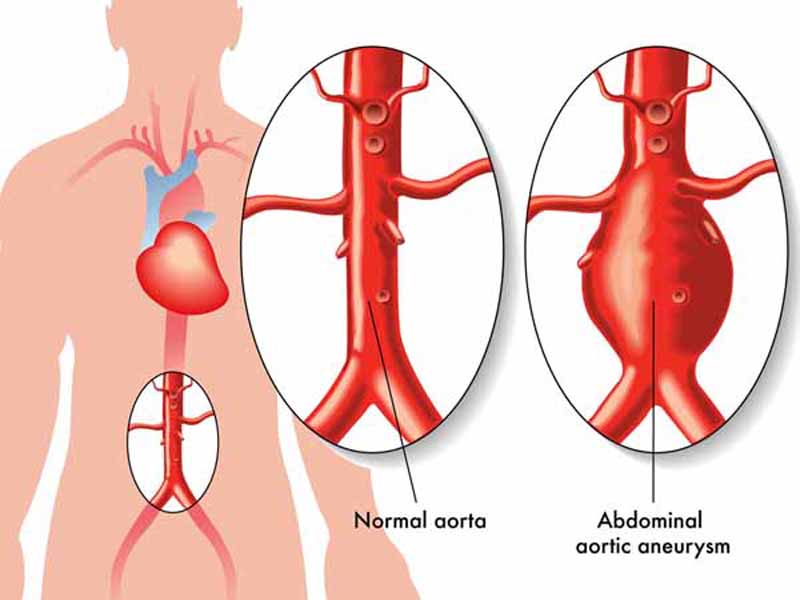USPSTF Recommends Screening Older Men Who Smoked for AAA
December 11, 2019 12:33 pm News Staff – On Dec. 10, the U.S. Preventive Services Task Force published a final recommendation statement and final evidence summary on screening for abdominal aortic aneurysm in people who do not have signs or symptoms of AAA.
Based on the evidence, the recommendations on screening for AAA varied depending on sex, age, smoking status and family history.
The group that benefits most from screening is men ages 65-75 who smoke or used to smoke. The task force recommends one-time AAA screening with ultrasonography in this group -- a "B" recommendation.
"Screening can reduce AAA-related death, rupture and emergency surgery," said USPSTF member Michael Barry, M.D., in a related news release. "The evidence shows that older men who are current or past smokers benefit the most from screening and should be screened. Older men who have never smoked might also consider screening."

For men this age who have never smoked, the USPSTF recommends that physicians selectively offer screening with ultrasonography -- a "C" recommendation. In such instances, patients and physicians should carefully consider the balance of benefits and harms of screening based on evidence relevant to the patient's personal medical history, family history of AAA, other risk factors and personal values.
As for women, the task force said they are significantly less likely than men to experience AAA and have a higher risk of harm from treatment of the condition than do men. Treatment can entail surgeries that may be unnecessary, harmful and potentially life-threatening. For these reasons, the USPSTF recommends against routine screening for AAA with ultrasonography in women who have never smoked and have no family history -- a "D" recommendation.
Story Highlights
However, for women ages 65-75 who are current or past smokers or who have a family history of AAA, the USPSTF concluded that current evidence is insufficient to assess the balance of benefits and harms of screening for AAA with ultrasonography and, therefore, recommends that physicians use their judgment -- in concert with patients' preferences and values -- when deciding who should be screened -- an "I" recommendation.
"The task force found that women who have never smoked and have no family history of AAA have a very low chance of having AAA and should not be screened because the evidence shows it could be harmful," says family physician and task force member Chyke Doubeni, M.D., M.P.H., in the release. "However, for women who have ever smoked or who have a family history of AAA, more research is needed to determine if screening is beneficial."
This final recommendation statement is consistent with the USPSTF's July draft recommendation statement and its June 2014 final recommendation on the topic.
The AAFP supported the task force's final recommendation in 2014.
Response to Public Comment
A draft version of this recommendation statement was posted for public comment on the USPSTF's website from June 18 to July 15.
Some commenters said they were concerned about the harms of screening. In response, the task force added information about overtreatment as a harm of screening to the Supporting Evidence section and added information about comorbid conditions to the Practice Considerations section.
Other commenters suggested more research was needed to examine issues related to AAA in diverse populations, which led the USPSTF to clarify its call for more research in the Research Needs and Gaps section.
Finally, a number of commenters said the populations recommended for AAA screening should be expanded. However, the task force said it didn't want to expand the scope of its recommendation statement beyond the populations justified according to its review of the current evidence. Rather, task force members called for research focused on the benefits and harms of screening in these additional groups.
Up Next
The AAFP's Commission on Health of the Public and Science plans to review the USPSTF's final recommendation statement and evidence summary and will then determine the Academy's stance on the recommendation.
More From AAFP
American Family Physician: Abdominal Aortic Aneurysm
(4/15/2015)